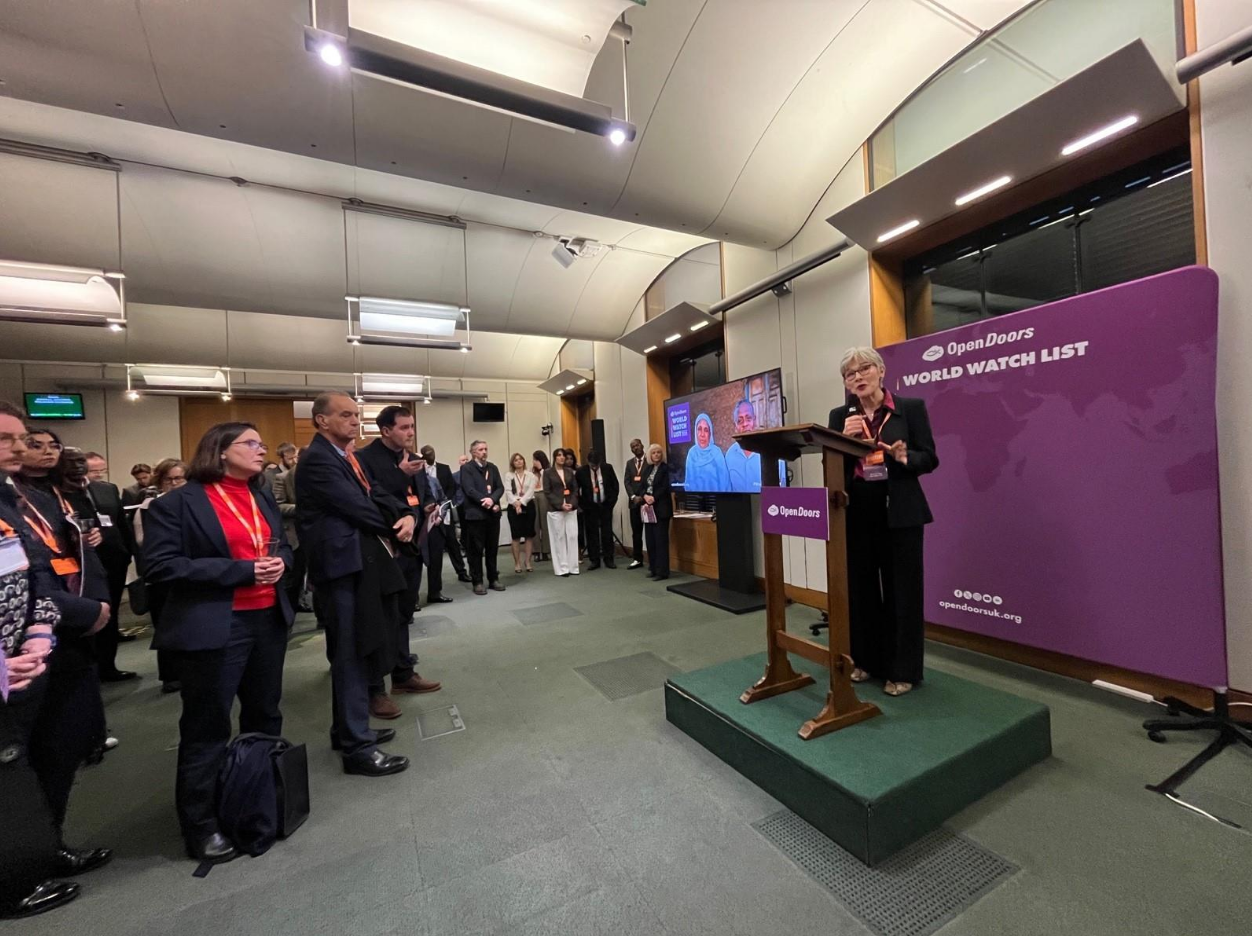 London, England with the skyscrapers of Canary Wharf in the background. | Credit: © User:Colin / Wikimedia Commons
London, England with the skyscrapers of Canary Wharf in the background. | Credit: © User:Colin / Wikimedia Commons
Jan 17, 2026 / 08:16 am (CNA).
Abortions in England and Wales hit a record high as use of the abortion pill continues to rise.
The number of abortions jumped 11% from 2022 to 2023, going from 250,000 to 270,000 according to figures from the Department of Health.
Almost 90% of these abortions were done via abortion pills, and most were performed on very young unborn children, usually aged two to nine weeks. Surgical abortions have been decreasing for the past two decades, according to the Department of Health
The abortion rate is estimated to be at 12.3 per 1,000 women in 2023, almost doubling the 2013 rate, which was 7.1 per 1,000 women. About 40% of women who had abortions in 2023 in England and Wales had already had an abortion in the past.
Pregnancy support line takes 1.3 million calls in 2025
Heartbeat International's pregnancy support helpline broke records with 1.3 million calls in 2025, according to a recent report by the group.
The Option Line tripled the number of calls it received in 2025 --- calls which, more than 90% of the time, come from men and women who are at risk for abortion, according to the organization.
Via its High Risk Response Network, Option Line helps connect those in need to local pregnancy help centers for prompt telecare consultations, as well as in-person visits. According to Heartbeat International, 9 out of ten callers show up for virtual consultation appointments, and three in four callers show up for pregnancy help appointments after they call.
Gov. Newsom rejects abortionist extradition request
California Gov. Gavin Newsom refused to extradite a California abortionist who allegedly provided abortion pills to a man who coerced his girlfriend into having an abortion.
Newsom on Wednesday rejected Louisiana Attorney General Liz Murrill's indictment for abortionist Remy Coeytaux, who was charged with criminal abortion in Louisiana after Rosalie Markezich's boyfriend allegedly ordered abortion pills from him and forced her to take them. Newsom said in a statement that he would "never be complicit with Trump's war on women."
South Carolina lawmakers introduce bill to ban coerced abortion
South Carolina lawmakers introduced several pro-life bills at the start of this year's legislative session, including a bill to protect women from coerced abortions.
The bill would make it a crime to coerce a woman into having an abortion, with penalties up to one year in prison and $5,000 in fines, or higher if she is a minor or if the perpetrator is the father of the child.
This bill was among several other newly-introduced pro-life bills, including a bill to protect unborn children after conception. The Life Begins at Conception Act, sponsored by Sen Matt. Leber (R-District 41), would protect unborn children after conception unless they were conceived by rape or incest. Legislators also introduced a bill that would ban chemical abortion pills.
Lawmakers also introduced a bill to classify abortion drugs as a controlled substance. This bill, if passed, would make possession without a prescription a felony, while exempting pregnant women from prosecution.
Another bill would make it a felony to pay for or reimburse the cost of an abortion for a South Carolina resident and would criminalize donating to organizations who fund women crossing state lines for abortions. Another bill would permanently bar abortion clinics from receiving Medicaid funds for any services, codifying a 2017 executive order.











